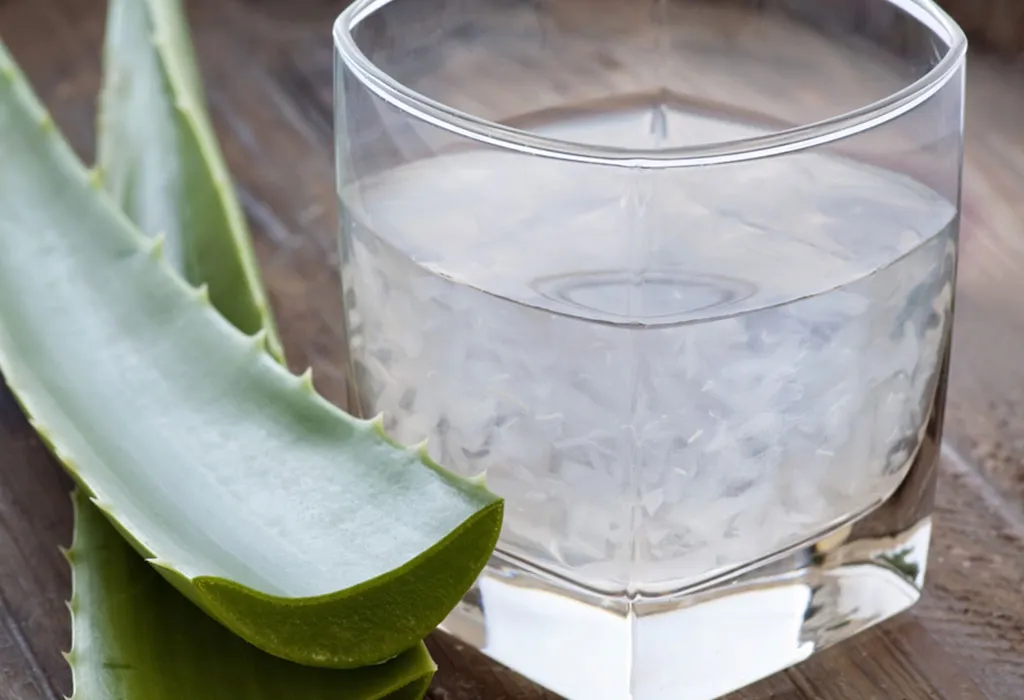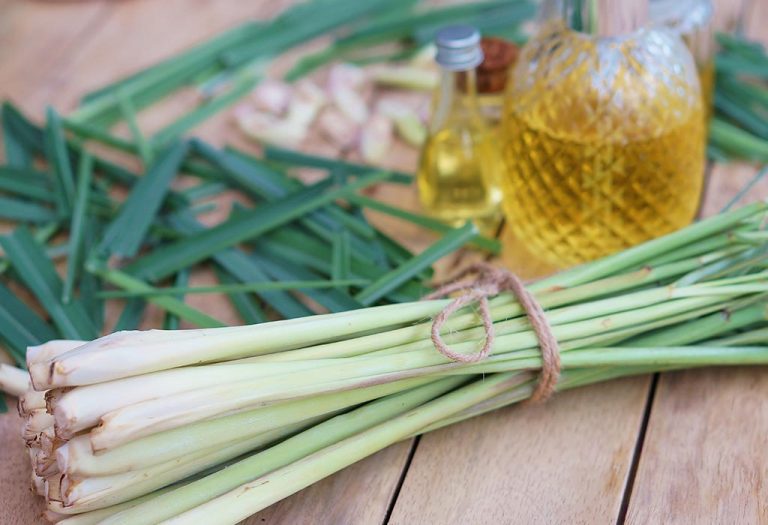Aloe Vera During Pregnancy – Benefits, Risks, and Tips
Know if aloe vera during pregnancy is safe, its health benefits, side effects, and when pregnant women should avoid it.

Have you been drinking aloe vera juice for a long time and plan to continue now that you are pregnant? Hold on; the topic of consuming aloe vera juice during pregnancy is not getting good verdicts, and we’ll tell you why. But first, for those who don’t know, aloe vera is a known elixir in skin creams and other beauty products because of its many health benefits. People have used aloe vera gel for thousands of years for medicine, skin softening, and treating conditions like constipation, among others. Their leaves contain an inner and outer gel along with a sticky residue called latex from under the leaf’s crust. Aloe vera can be grown in the house, and the inner gel can be juiced in a blender for consumption. So what’s the final verdict on the use of aloe vera in pregnancy, and will aloe vera drink during pregnancy have any effect on the pregnancy? Let’s find out.
Is Aloe Vera Safe During Pregnancy?
Topical use of aloe vera gel, like for skin issues and stretch marks, is fine and generally safe. However, consuming aloe vera, either juice, jelly, or latex, is not safe and not recommended, as it can stimulate the uterus by potentially inducing uterine contractions, diarrhoea, electrolyte imbalance, and even miscarriage (1).
There is no positive data regarding aloe vera’s oral consumption in pregnant women. However, if you have been consuming it before pregnancy and want to continue it during pregnancy in small amounts, we suggest you stop and consult your doctor before taking aloe during pregnancy. Aloe vera and pregnancy do not pair well.
Can You Drink Aloe Vera Juice While Pregnant?
Is aloe juice safe during pregnancy? The consensus in the medical community is that women should exercise caution before drinking aloe vera juice during pregnancy. Certain compounds present in the plant can be harmful to the mother and the baby if taken improperly. Aloe vera is known to increase the risk of uterine contractions, which can be dangerous during pregnancy. Aloe juice during pregnancy also affects the blood glucose level by lowering it. This could increase the chances of lightheadedness and loss of balance.
The Aloe latex found in the plant is a powerful laxative and can stimulate bowel movements and create an electrolyte imbalance in the intestines (2). Also, Aloe vera contains anthraquinones, a strong purgative often used as a laxative. Breastfeeding mothers should also be cautious, as these compounds pass through breast milk and may severely upset the baby’s immature digestive system. Therefore, pregnant women should avoid consuming aloe vera unless their doctor or health care provider recommends drinking aloe vera juice. Otherwise, it is better to stay away from it (3).
Use and Benefits of Aloe Vera During Pregnancy
It is okay to use aloe vera only externally during pregnancy, as it is not known to cause any concern on the skin if applied externally. Here are some topical uses of aloe vera on the skin during pregnancy (2):
- Aloe vera is known for its anti-inflammatory, astringent (cooling), and anti-fungal properties. It is effective in skin protection against UV radiation (4). It can be applied topically on light burns, sunburns, insect bites, and stings (5).
- Aloe vera gel during pregnancy can be used as a natural moisturiser for dry and itchy skin. Applying it regularly keeps the skin soft and supple and reduces dermatitis, eczema, and psoriasis (4).
- Its topical application is also effective against itchy skin and pregnancy stretch marks.
- You can also use this natural wonder to reduce your acne and infections. Just rub aloe vera juice on the areas with irritation or acne.
- Thanks to the photoprotective properties in aloe vera’s juice, it stimulates cell regeneration and hair growth.
- Aloe vera works effectively in treating skin problems such as acne.
Although rare, an allergy to aloe is possible. To find out whether you are allergic to aloe vera, dab a bit of latex under your arm or behind your ear. If you develop a sting or a rash, do not use it further (6).
It is recommended to use aloe vera topically only during pregnancy. It is not recommended to be ingested orally.
Risks of Aloe Vera Consumption in Pregnancy
- Aloe latex is a powerful laxative, and the intake of significant amounts of whole-leaf aloe juice can lead to painful abdominal cramps and diarrhoea (7). Its latex is also known to cause kidney damage and bloody diarrhoea, and it can severely upset the electrolyte balance. This can lead to unusual heart rhythms, muscle weakness and uterine contractions, which can be highly dangerous to pregnant women.
- An increased risk of colorectal cancer has been found in those who use aloe vera for over a year. Other reports also indicate liver inflammation with the intake of high doses of Aloe, leading to digestive disorders & extreme acidity. It can also suppress appetite.
- With women who have gestational diabetes, aloe vera juice side effects during pregnancy include improper regulation of blood glucose levels. Since the juice reduces glucose levels, it can interfere with existing methods of blood glucose regulation and can also lead to hypoglycemia.
- Breastfeeding women should be cautious, as some of the compounds get transmitted to infants. Its latex is known to cause diarrhoea and vomiting in infants. As the safety of aloe on infants is mostly unknown, it’s best that breastfeeding mothers avoid it (3).
- People who are allergic to plants belonging to the Liliaceae, the lily family, tend to be allergic to aloe vera. This family includes onions, garlic, lilies, tulips, and hyacinths. Allergic reactions can include difficulty breathing, swollen skin, itchy skin with rashes, and tightness in the chest and throat. An allergic reaction triggered by Aloe should be considered a medical emergency and treated immediately.
- Aloe vera may cause a burning, stinging sensation, redness, and rarely dermatitis in sensitive people (1).
Does It Cause Miscarriage?
While there’s limited information on aloe vera juice and pregnancy, there is evidence of the risks of aloe latex during this crucial time. Aloe latex, extracted from the plant’s leaves, is considered a cathartic agent and is often used as a laxative.
As per the Journal of Environmental Science and Health, cathartic agents can trigger uterine contractions, which may increase the risk of early labour or miscarriage during pregnancy (3). Therefore, it’s advisable to avoid consuming aloe latex while pregnant in any form.
If you’ve already consumed a small amount of aloe juice or a beverage containing aloe latex without knowing, it’s unlikely to be harmful if consumed in small amounts. However, it’s essential to stay vigilant for any unusual symptoms and consult your doctor or healthcare provider if you have concerns. Your well-being and peace of mind are top priorities.
What Happens If You Accidentally Drink Aloe Vera Juice While Pregnant?
If you have accidentally consumed aloe vera, don’t panic. Look for any symptoms or sensitivity in your body, like diarrhoea, cramping, stomach pain, or adverse reactions. Consult your doctor promptly if you feel slightly unwell.
Alternatives to Aloe Vera When Pregnant
While topical application of aloe vera gel is considered safe during pregnancy and breastfeeding, oral consumption or eating aloe vera is not safe due to the potential health risks.
Safe and effective alternate remedies depend on the intended use of aloe vera.
If you want an alternative to aloe vera to treat Skin Irritation, Eczema, Dryness, and Itching, try:
- Calamine lotion: This lotion is widely accepted as a remedy for general itchiness on the tummy and other regions during pregnancy.
- Colloidal oatmeal: Colloidal oatmeal can be easily purchased or prepared at home. It calms sensitive and itchy skin.
- Coconut oil: You can rub lukewarm coconut oil on the dry, itchy skin.
- Hypoallergenic, fragrance & SLS-free moisturisers: Ask your doctor to recommend a good moisturiser for dry, sensitive skin.
If you are thinking of considering aloe vera to treat Heartburn, Nausea, or other Digestion-related issues, try (8):
- Ginger root: Ginger root is a known remedy to relieve nausea and vomiting during pregnancy.
- Peppermint tea: It is a popular medicine to relieve nausea and flatulence.
Safety Tips to Keep in Mind While Using Aloe Vera in Pregnancy
Certainly, you need to be aware of some important safety measures when planning to use aloe vera in pregnancy in any form. Here are some you should not miss:
- If you are planning to use aloe vera topically or otherwise, make sure to consult with your doctor first.
- Always use fresh aloe vera in pregnancy. You can dice the leaves into small pieces to store them in the refrigerator for up to 10 days.
- If you are allergic to onions, garlic, or tulips, you might react to aloe vera, as well. However, it is not certain.
- If you have accidentally consumed aloe vera, don’t panic. Look for any sensitivity in your body, any difference, or adverse reactions and consult your doctor if you find one.
FAQs
1. Can aloe vera induce labour?
There is a chance that aloe vera can induce labour if consumed in significant amounts, as the latex in it causes uterine contractions.
2. Can aloe vera help you get pregnant?
There is no evidence that suggests aloe vera can help in conceiving, but there is evidence of the effects of aloe latex on uterine contractions, which are not good for pregnancy. However, to reap its general benefits, you may consume it in moderation outside of pregnancy.
3. Is it safe to use aloe vera on the skin when you are pregnant?
Aloe vera has great hydrating properties that are good for the skin’s health. Additionally, its anti-inflammatory properties are great for tackling issues like hyperpigmentation (9).
4. Can you use aloe vera for stretch marks in pregnancy?
No such evidence exists that supports the efficacy and safety of aloe vera for stretch mark reduction in pregnancy. Since this plant has natural sunscreen properties, it can be tried for stretch marks. We recommend consulting a doctor before using this natural remedy.
5. Can aloe vera help with constipation and pregnancy melasma?
Though aloe vera has hydrating and soothing properties, it is unlikely for it to treat melasma since it is a hormonal condition.
As with constipation, it is better to avoid aloe vera during pregnancy because it has laxative properties. In case it helps with constipation too much, it could jeopardise your pregnancy rather than help it.
Now that you know whether aloe vera juice can be consumed during pregnancy. You should find the information given above useful to prepare your questions before consulting your doctor. Traditionally, aloe vera is considered a medicinal plant. However, it may not show the same results during pregnancy and while breastfeeding. Therefore, unless it is recommended by your doctor, it is safer to avoid the consumption of aloe vera during pregnancy.
Also Read:
Sweet Lime in Pregnancy
Sugarcane Juice while Pregnant
Bottle Gourd (Lauki) During Pregnancy
Cranberries or Cranberry Juice during Pregnancy
Was This Article Helpful?
Parenting is a huge responsibility, for you as a caregiver, but also for us as a parenting content platform. We understand that and take our responsibility of creating credible content seriously. FirstCry Parenting articles are written and published only after extensive research using factually sound references to deliver quality content that is accurate, validated by experts, and completely reliable. To understand how we go about creating content that is credible, read our editorial policy here.
1. National Library of Medicine – ALOE VERA: A SHORT REVIEW
3. National Library of Medicine – Aloe vera: A review of toxicity and adverse clinical effects
4. ScienceDirect – Aloe vera leaf gel: a review update
5. URMC – Aloe
6. Brigham and Women’s Hospital – Aloe
8. Pregnancy Birth and Baby – Herbal teas during pregnancy and breastfeeding





































